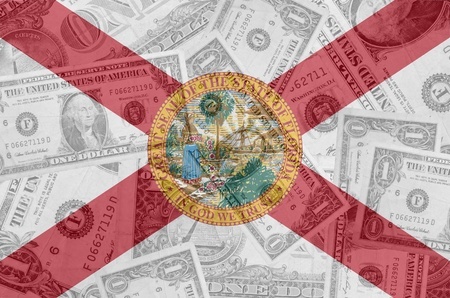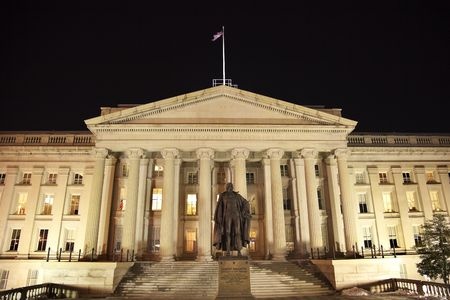Articles by Patrick Siegfried
New York Choice-of-Law Statute Helps Creditor Overcome Usury Defense
August 20, 2015 An alternative litigation financing company provided a California law firm with a $6 million dollar line of credit. When the law firm failed to pay, the finance company filed suit for breach of contract. The contract provided that the parties’ agreement would be governed by New York law.
An alternative litigation financing company provided a California law firm with a $6 million dollar line of credit. When the law firm failed to pay, the finance company filed suit for breach of contract. The contract provided that the parties’ agreement would be governed by New York law.
In response to the complaint, the law firm filed a motion to dismiss. It argued that if the court conducted a choice of law analysis the court would find that New York’s choice of law rules required the application of California law. The law firm argued that once the agreement was examined under California law the agreement would be found unenforceable because it violated California usury law. The finance company countered that the court was prohibited from conducting a choice of law analysis because the parties had agreed that New York law would govern their transaction and that, pursuant to New York statute, the court was required to respect the parties’ choice.
The court agreed with the finance company. It cited New York General Obligations Law § 5-1401, which provides:
The parties to any contract … arising out of a transaction covering in the aggregate not less than two hundred fifty thousand dollars … may agree that the law of this state shall govern their rights and duties in whole or in part, whether or not such contract, agreement or undertaking bears a reasonable relation to this state.
As the contract at issue involved a transaction in excess of $250,000, the court held that sec. 5-1401 required that the parties’ choice of law provision be enforced. The court noted that the statute explicitly prohibited the court from conducting a choice of law analysis even if the contract would ultimately found to be usurious under California law.
After reviewing the parties’ agreement, the court found that the transaction was not usurious under New York law and denied the law firm’s motion to dismiss.
Hamilton Capital VII, LLC v Khorrami, LLP, 2015 N.Y. Misc. LEXIS 2954 (N.Y. Sup. Ct. Aug. 17, 2015)
Participate in Alternative Finance? You Might Want to Start Watching the Supreme Court
August 19, 2015 A trio of cases before the Supreme Court could have far reaching effects on alternative small business finance. Here’s a rundown of what to watch.
A trio of cases before the Supreme Court could have far reaching effects on alternative small business finance. Here’s a rundown of what to watch.
1. Texas Department of Housing and Community Affairs v. The Inclusive Communities Project, Inc. (Decided June 25, 2015)
In this case, the Court was asked to decide whether a disparate impact claim—a legal theory that allows regulators to bring discrimination claims against a defendant even where no intentional discrimination is alleged—could be brought under the Fair Housing Act. Many observers hoped the Court would find that such claims could not be brought under the FHA and nearby limit their use under other federal statutes such as the Equal Credit Opportunity Act. The Court, however, found that disparate impact claims could be brought under the FHA.
How does this affect alternative lenders?
The Dodd-Frank Act gave the CFPB authority to enforce ECOA, which is one of the few fair lending laws that apply to small business lenders. Some legal observers believe that the CFPB could potentially bring disparate impact claims under ECOA against alternative funders that the Bureau believes have engaged in policies that have resulted in discrimination. The Court’s decision may embolden the agency to bring future actions.
2. Hawkins v. Community Bank of Raymore (To be argued October 5, 2015)
ECOA prohibits lenders from discriminating against applicants on the basis of race, color, religion, national origin, sex, marital status, or age. It also requires lenders to provide applicants notice of any adverse actions taken by the lender in relation to the applicants’ request for credit. The Hawkins case asks the Court to decide whether guarantors should be included in the definition of applicant.
How does this affect alternative lenders?
If the Court determines that personal guarantors are included in the definition of applicant, guarantors would be entitled to the same protections and disclosures as business applicants. Lenders would be required to provide the primary business applicant as well as each guarantor with the appropriate adverse action notices in the event of a decline. Implementing procedures to comply with this requirement could require significant investment from alternative lender.
3. Madden v. Midland Funding, LLC (Appeal expected soon)
This case has been widely followed given its potential effects on marketplace lenders that use banks to originate their loans. The Madden court held that the usury preemption provision of the National Bank Act did not apply to non-bank assignees. Midland requested that the 2nd Circuit rehear the case en banc but that request was denied last week. Midland now has 90 days from the date of the denial to petition the Supreme Court to review the 2nd Circuit’s decision.
How does this affect alternative lenders?
As it stands now, Madden is binding in the 2nd Circuit. If the Supreme Court declines to hear the case, the denial will confirm that Madden is settled law. In that event, observers will be closely watching to see what effect Madden has on litigation involving marketplace lending as well as the purchase and sale of bank originated debt in the larger secondary markets. A recent case out of California may provide some early indications.
Madden vs. Midland Funding, LLC: What does it mean for Alternative Small Business Lending?
August 13, 2015 On Friday, May 22, 2015, while the rest of us were gearing up for the long Memorial Day weekend, three judges of the United States Court of Appeals for the Second Circuit quietly issued their decision in Madden v. Midland Funding, LLC. Though issued to little fanfare, the decision, if upheld on appeal—may lead to significant changes in consumer and commercial lending by non-bank entities.
On Friday, May 22, 2015, while the rest of us were gearing up for the long Memorial Day weekend, three judges of the United States Court of Appeals for the Second Circuit quietly issued their decision in Madden v. Midland Funding, LLC. Though issued to little fanfare, the decision, if upheld on appeal—may lead to significant changes in consumer and commercial lending by non-bank entities.
Loans that were previously only subject to the usury laws of a single state may now be subject to more restrictive usury laws of multiple jurisdictions. Commercial transactions that could be affected include short-term loans by a number of alternative small business lenders.
The Case
The plaintiff, Saliha Madden, opened a credit card account with a national bank in 2005. Three years later, Madden’s account was charged off with an outstanding balance. The account was later sold to Midland Funding, LLC, a debt purchaser.
In November 2010, Midland sent a collection letter to Madden’s New York residence informing her that interest was still accruing on her account at the rate of 27% per year. In response, Madden filed a class action lawsuit against Midland and its servicer. In her complaint, Madden alleged that Midland had violated state and federal laws by attempting to collect a rate of interest that exceeded the maximum rate set by New York State’s usury laws. Midland countered that as a national bank assignee, it was entitled to the preemption of state usury laws granted to national banks by the National Bank Act (the “NBA”). The district court agreed with Midland and entered judgment in its favor. Madden appealed to the Second Circuit.
After reviewing the record, the Court of Appeals reversed the district court’s decision. The appellate court found that the NBA’s preemption provision did not apply to Midland as a mere bank assignee. Instead, the court held that in order “[t]o apply NBA preemption to an action taken by a non-national bank entity, application of state law to that action must significantly interfere with a national bank’s ability to exercise its power under the NBA.”
The court explained that the NBA’s preemption protections only apply to non-bank entities performing tasks on a bank’s behalf (e.g. bank subsidiaries, third-party tax preparers). If a bank assignee is not performing a task on a national bank’s behalf, the NBA does not protect the assignee from otherwise applicable state usury laws. Therefore, as Midland’s collection efforts were performed on its own behalf and not on behalf of the national bank that originated Madden’s account, the appellate court found that New York’s usury laws were not preempted and that Midland could be subject to New York’s usury restrictions.
Usury Law Compliance
The Madden decision undermines a method of state usury law compliance that I’ll refer to as the “exportation model”. In a typical exportation arrangement, a non-bank lender contracts with a national bank to originate loans that the lender has previously underwritten and approved. After a deal has been funded, the bank sells the loan back to the lender for the principal amount of the loan, plus a fee for originating the deal.
1F.3d —, 2015 U.S. App. LEXIS 8483 (2d Cir. N.Y. May 22, 2015).
The exportation model allows non-bank lenders to benefit from the preemption protections granted to banks under the NBA. Specifically, the NBA provides that a national bank is only subject to the laws of its home state. This provision allows a bank to ‘export’ the generally less restrictive usury laws of its home state to other states where it does business. As bank assignees, lenders that have purchased loans from a bank are only subject to the laws of the originating bank’s home state. This exemption saves these non-bank lenders from having to engage in a state-by-state analysis of applicable usury laws.
The Madden decision, however, casts doubt on the ability of these non-bank assignees to benefit from the NBA’s preemption protections. The Second Circuit’s decision makes clear that non-bank assignees that are not performing essential acts on a bank’s behalf—which would seem to include alternative small business lenders—are not entitled to NBA preemption and are subject to the usury laws of the bank’s home state as well as any otherwise applicable state’s
usury laws.
Aftermath
While the Court of Appeals’ decision foreclosed Midland’s preemption argument, other issues remained unresolved. Specifically, the circuit court did not decide whether the choice-of-law provision in Madden’s cardholder agreement—which provided that any disputes relating to the agreement would be governed by the laws of Delaware—would prevent Madden from alleging violations of New York State usury law.
 In the district court proceeding, both parties had agreed that if Delaware law was found to apply, the 27% interest rate would be permissible under that state’s usury laws. The district court, however, did not address the choice-of-law issue because the court had found that the NBA’s preemption protections were sufficient grounds upon which to resolve the case. As the issue had not been addressed, the circuit court remanded the case back to the district court to decide which state’s law controlled.
In the district court proceeding, both parties had agreed that if Delaware law was found to apply, the 27% interest rate would be permissible under that state’s usury laws. The district court, however, did not address the choice-of-law issue because the court had found that the NBA’s preemption protections were sufficient grounds upon which to resolve the case. As the issue had not been addressed, the circuit court remanded the case back to the district court to decide which state’s law controlled.
But before sending the case back down, the appellate court made two points worth noting. First, the court stated that “[w]e express no opinion as to whether Delaware law, which permits a ‘bank’ to charge any interest rate allowable by contract…would apply to the defendants, both of which are non-bank entities.” The court’s statement suggests that it may not have completely agreed with the parties that 27% would be a permissible interest rate under Delaware law.
Second, the court highlighted a split in New York case law on the enforceability of choice-of-law provisions where claims of usury are involved. Generally, courts will refuse to enforce a choice-of-law provision if the application of the chosen state’s law would violate a public policy of the forum state. As usury is sometimes considered an issue of public policy, the enforceability of such clauses is commonly a point of contention in usury actions. The cases cited by the Court of Appeals show that some courts in New York have enforced choice-of-law provisions—even where the interest rate permitted by the chosen state would violate New York’s usury laws—while other New York courts have refused to enforce such provisions in light of public policy concerns.
New York, however, is by no means the only state with usury laws that are less than straightforward. The general complexity of state usury laws is evidenced by the circuit court’s hesitation to agree with Madden’s concession that a 27% interest rate would be permissible under Delaware law. The court made clear that an argument could be made that the rate was usurious under both New York and Delaware law.
Madden’s Impact
An important legal principle that was not addressed in either the district or circuit court proceedings is the ‘valid when made’ doctrine of assignment law. The ‘valid when made’ doctrine provides that a loan that is valid at the time it is made will remain valid even if the loan is subsequently assigned. This doctrine may have led to a different outcome in the case had Midland argued it before the district or circuit court. Midland is now appealing the Second Circuit’s decisions and many expect a ‘valid when made’ argument to be a primary point of Midland’s appeal (SEE NOTE BELOW). If this argument is successful, the practical impact of Madden would be greatly diminished.
NOTE: The Second District Court rejected a request to rehear the case. Read that decision here.
In the meantime, the Madden decision will likely increase the importance of choice-of-law analysis in relation to usury law. Assignees that previously relied on the NBA’s preemption provision as a method of state usury law compliance will now need to address the enforceability of their contractual choice-of-law clauses where claims of usury may become an issue. This analysis is often a complex undertaking because states take varying views of what constitutes usury as well as whether or not usury is an issue of public policy.
While the Madden decision may have been published before the long Memorial Day weekend, analyzing its consequences will likely keep many non-bank lenders (and their attorneys) busy, even on their days off.
Ignoring Cease and Desist Letters – Just Don’t Do It
August 12, 2015 Usury law is complex. It is an area of law heavily burdened with obscure exceptions and antiquated nuances. Yet, one point is clear.
Usury law is complex. It is an area of law heavily burdened with obscure exceptions and antiquated nuances. Yet, one point is clear.
No matter how clear the case law, sophisticated the compliance program or lax the regulator, when a business receives a cease and desist letter from a state or federal authority it must be addressed. To do nothing risks litigation and worse. Case in point is the recent complaint filed by the CFPB against payday lender NDG Financial Corp. and its affiliates.
According to the complaint, NDG received cease and desist letters regarding its lending practices from Michigan (2014), California (2012, 2013, and 2014), Virginia (2013), New Hampshire (2011), Maine (2011), Oregon (2011), and Pennsylvania (2010). And though NDG stopped lending in some of these jurisdictions, it apparently felt confident enough to continue its operations in a number of these states even after receiving the letters. Partly as a result, the Bureau filed suit.
Now, I am in no way suggesting that CFPB will prevail in its claims against NDG or that merely receiving a cease and desist letter is evidence of wrongdoing. As a recent post of mine shows, regulators are often incorrect in their interpretation of usury law. That being said, the number of previous warnings NDG received from state regulators prior to being sued is stunning. So it seems to me that NDG is somewhat responsible for the targeting it has received from the CFPB.
If a lender has received 8 cease and desist letters within a 4 year period, there is a problem. It doesn’t mean it must immediately stop all lending. But it would be wise to undertake a greater review of its operations and, hopefully, generate a plan to address the regulators’ concerns.
Placing one’s head in the sand just won’t cut it.
Former SBA Administrator Karen Mills Urges CFPB to Enact Small Business Data Collection Rule
August 11, 2015 Last week a handful of small business lenders announced the formation of the Responsible Business Lending Coalition. The announcement was made at an event held at the National Press Club in Washington, DC. The event’s Keynote speaker was former SBA Administrator Karen Mills.
Last week a handful of small business lenders announced the formation of the Responsible Business Lending Coalition. The announcement was made at an event held at the National Press Club in Washington, DC. The event’s Keynote speaker was former SBA Administrator Karen Mills.
During her presentation, Ms. Mills called on the CFPB to implement the Small Business Data Collection Rule of the Dodd-Frank Act. Ms. Mills’ request echoes the recent letter signed by 19 US senators urging the Bureau to issue the regulations contemplated by section 1071 of the Act. Ms. Mills argued that the data collection rule will be critical to understanding small business credit availability, especially for women and minority owned businesses.
Ms. Mills’ statements are the most recent in a series of requests to the CFPB to implement 1071. In addition to the 19 senators, multiple community activist groups along with the National Community Reinvestment Coalition have demanded that the Bureau take action.
The White House has remained silent on the issue so far. If the Bureau does decide to act, the new rule could be added to its list of action items as early as this winter.
Florida Court of Appeals Finds Usury Does Not Violate Public Policy, Denies Temporary Injunction
August 8, 2015 The Florida Office of the Attorney General was granted a temporary injunction against CashCall, Inc. The Attorney General’s action was based on alleged violations by CashCall of Florida’s Deceptive and Unfair Trade Practices Act related to loans CashCall had issued to Florida residents that charged rates in excess of Florida’s usury law. The injunction required CashCall to pay all loan proceeds it received during the pendency of the underlying litigation into the court registry and to establish a reserve of one million dollars. CashCall appealed to the Court of Appeals.
The Florida Office of the Attorney General was granted a temporary injunction against CashCall, Inc. The Attorney General’s action was based on alleged violations by CashCall of Florida’s Deceptive and Unfair Trade Practices Act related to loans CashCall had issued to Florida residents that charged rates in excess of Florida’s usury law. The injunction required CashCall to pay all loan proceeds it received during the pendency of the underlying litigation into the court registry and to establish a reserve of one million dollars. CashCall appealed to the Court of Appeals.
In its review, the Court explained that “[a]s a matter of law, in order to obtain a temporary injunction the Attorney General must demonstrate that ‘it has a clear legal right’ to the injunction…” and that “the viability of the Attorney General’s action is dependent on its ability to avoid the choice of law provision in the loan agreements.” The provisions provided that the loans at issue would be governed under the laws of Cheyenne River Sioux Tribe which permitted the rates charged.
The Attorney General argued that the choice of law provision was unenforceable because it violated Florida’s strong public policy against usury. CashCall disagreed. It countered that Florida had no such policy against usury and the provision should be upheld.
CashCall’s argument prevailed. The appellate court cited two cases where the Florida Supreme Court had declined to apply the public policy exception to set aside a choice of law provision in a usury context. In those cases, the Supreme Court held that Florida has no strong public policy against usury as long as there is a reasonable relationship between the chosen jurisdiction and the transaction.
The Court of Appeals highlighted that the Attorney General had essentially agreed with this finding during the lower court proceedings. The Court quoted a portion of the Attorney General’s statement:
Hey, that money you’re getting from Floridians, let’s put it into the Court Registry until we can hear your Motion to Dismiss from all of your hundreds of attorneys and we can talk about hundreds of years’ worth of tribal authority. And you know what, they might win. There’s good case law I think as Brian said on both sides. It is an interesting argument. But I would like to ask the Court to focus on what we asked for and are we entitled to it.
Based on the Attorney General’s statement and Supreme Court precedent, the Court of Appeals found that the Attorney General had failed to demonstrate a clear right to the injunction and reversed the lower court’s decision.
Cashcall, Inc. v. Office of the AG, 2015 Fla. App. LEXIS 11559 (Fla. Dist. Ct. App. 2d Dist. July 31, 2015)
First Comments to Treasury’s RFI Highlight the Importance of Marketplace Lenders Despite Higher Rates
August 4, 2015 The first responses to Treasury’s request for information about marketplace lenders were posted online yesterday. While only 3 responses have so far been posted, comments from a number of alternative finance providers are expected.
The first responses to Treasury’s request for information about marketplace lenders were posted online yesterday. While only 3 responses have so far been posted, comments from a number of alternative finance providers are expected.
The first response, however, came from Patrick Fitzsimmons, the executive director of Mountain BizWorks, a North Carolina-based community development financial institution. Mr. Fitzsimmons submitted an article published last month in The Citizen Times of Asheville, NC. The article details one small business owner’s efforts to obtain a business loan. After being turned down by banks numerous times, the owner was finally able to obtain financing from an online marketplace lender.
The article quotes a number of employees of CDFIs who criticized the rates charged by some online lenders. One CDFI employee went as far as to characterize the rates charged as “predatory”. In contrast, however, the business owner was—if not enthusiastic about—grateful for the assistance his business received from the online lender.
“It’s not deceiving. I knew what I was getting into,” he said of the loan. “I can’t say that OnDeck didn’t help my business because it did. To say it was great, though, would be an overstatement. For me, it was like getting a root canal: This is not going to be fun, but it’s what I need to do.”
Though the article is somewhat critical of rates charged, it highlights how important alternative marketplace lenders have become to the survival of many small businesses. As the quote above shows, marketplace lenders are, in many cases, the last lifeline available to businesses in need of working capital.
I expect the comments from industry participants to continue to emphasize the need for alternative sources of business capital. At the same time, the industry would be well served to take this opportunity to explain, in greater detail, why alternative product rates are higher than traditional bank financing as some community organizations do not fully appreciate the increased costs and risks associated with offering small business funding.
Blyden v. Navient Corp: A Glimpse of a Post-Madden Future?
July 28, 2015 A recent US District Court decision out of California offers a rough idea of the usury litigation that may begin to occur if the decision in Madden vs. Midland Funding, LLC ultimately stands.
A recent US District Court decision out of California offers a rough idea of the usury litigation that may begin to occur if the decision in Madden vs. Midland Funding, LLC ultimately stands.
The case involved a student loan that the plaintiff had received that had been originated by a national bank. The loan charged an interest rate of 10.25% which the plaintiff believed to be lawful because the loan had been made by a bank.
When the plaintiff later learned that her loan had been assigned to a non-bank entity, she instituted a usury class action arguing that the assignee was not been permitted to charge more than 10% interest under California law. She sought to represent a class of borrowers whose loans had been made by the national bank and later assigned.
In an effort to represent the largest class possible, the plaintiff named as defendants various investment trusts that had purchased loans from the bank despite the fact that most of the trusts had never had any interest in her specific loan. While the court ultimately dismissed the case because of pleading deficiencies, it granted the plaintiff leave to amend her complaint and the case seems likely to continue.
What’s noteworthy about the Blyden case is that it is illustrative of some of the possible consequences of the 2nd Circuit’s decision in Madden. In particular, it shows that a large number of unrelated entities may be drawn into extended litigation by a plaintiff that is unable (because of a lack of information) or unwilling (because of a desire to represent the largest class possible) to limit its claims to those specific entities that have had or presently maintain an interest in the loan at issue. While this desire to cast the widest net possible is common to most class action plaintiffs, it seems likely to prove especially true in cases involving securitized products that have passed through numerous investment vehicles.
Blyden also demonstrates that debtors that become aware of subsequent assignments of their loans may be inclined to use the assignment event as a way to invalidate otherwise legitimate debts. The plaintiff in Blyden conceded that she was unable to pursue a usury action against the national bank that had originated the loan because of NBA preemption. She also acknowledged that the original transaction had been legal. Only when the plaintiff later learned of the assignment of her loan to a non-bank entity did she seek to recover the allegedly usurious interest charges.
What may be most disconcerting for assignees about the Blyden case is that it only demonstrates some of the complex consequences that may result from the Madden decision.
Blyden v. Navient Corp., 2015 U.S. Dist. LEXIS 96824 (C.D. Cal. July 23, 2015)






























